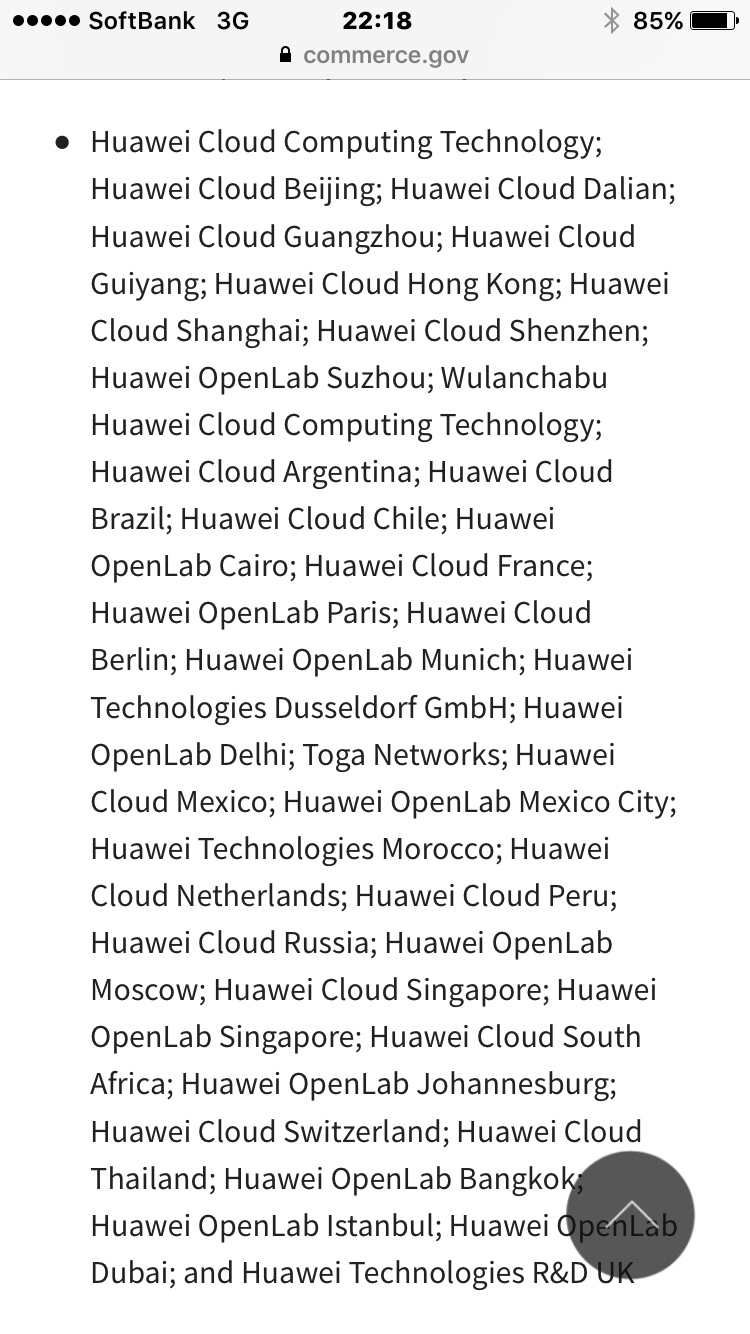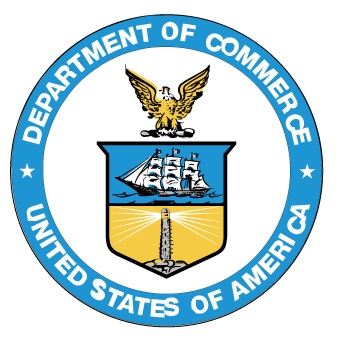

商务部进一步限制华为访问美国技术并在实体列表中增加38个会员
商务部工业和安全局(BIS)
今天,华为技术有限公司(Huawei Technologies(Huawei))及其非美国分支机构进一步限制了实体列表上使用美国技术和软件在国内外生产的商品的访问权限。
此外,国际清算银行在实体清单中又增加了38个华为分支机构,对所有受出口管理条例(EAR)约束的项目都规定了许可证要求,并修改了四个现有的华为实体清单条目。
国际清算银行还对涉及实体清单中的当事方(例如华为(或其他实体清单中的实体))的,受商务出口管制管辖范围内的项目进行的交易规定了许可证要求。
充当购买者,中间用户或最终用户。这些措施立即生效,阻止了华为企图绕过美国出口管制以获取使用美国技术开发或生产的电子组件的企图。
2020年5月,国际清算银行修改了长期以来的外国直接生产(FDP)规则,以华为收购某些美国直接产品中的半导体为目标。
软件和技术。
Today’s amendment further refines the FDP rule by applying the control to transactions:
1) where U.S. software or technology is the basis for a foreign-produced item that will be incorporated into, or will be used in the “production” or “development” of any “part,” “component,” or “equipment” produced, purchased, or ordered by any Huawei entity on the Entity List;
or 2) when any Huawei entity on the Entity List is a party to such a transaction, such as a “purchaser,” “intermediate consignee,” “ultimate consignee,” or “end-user.”
This amendment further restricts Huawei from obtaining foreign made chips developed or produced from U.S. software or technology to the same degree as comparable U.S. chips.
“Huawei and its foreign affiliates have extended their efforts to obtain advanced semiconductors developed or produced from U.S. software and technology in order to fulfill the policy objectives of the Chinese Communist Party,” said Commerce Secretary Wilbur Ross.
“As we have restricted its access to U.S. technology, Huawei and its affiliates have worked through third parties to harness U.S. technology in a manner that undermines U.S. national security and foreign policy interests. This multi-pronged action demonstrates our continuing commitment to impede Huawei’s ability to do so.”
The following 38 new Huawei affiliates
across 21 countries were added to the Entity List because they present a significant risk of acting on Huawei’s behalf contrary to the national security or foreign policy interests of the United States.
There is reasonable cause to believe that Huawei otherwise would seek to use them to evade the restrictions imposed by the Entity List.
Huawei Cloud Computing Technology; Huawei Cloud Beijing; Huawei Cloud Dalian; Huawei Cloud Guangzhou; Huawei Cloud Guiyang; Huawei Cloud Hong Kong; Huawei Cloud Shanghai; Huawei Cloud Shenzhen; Huawei OpenLab Suzhou; Wulanchabu Huawei Cloud Computing Technology; Huawei Cloud Argentina; Huawei Cloud Brazil; Huawei Cloud Chile; Huawei OpenLab Cairo; Huawei Cloud France; Huawei OpenLab Paris; Huawei Cloud Berlin; Huawei OpenLab Munich; Huawei Technologies Dusseldorf GmbH; Huawei OpenLab Delhi; Toga Networks; Huawei Cloud Mexico; Huawei OpenLab Mexico City; Huawei Technologies Morocco; Huawei Cloud Netherlands; Huawei Cloud Peru; Huawei Cloud Russia; Huawei OpenLab Moscow; Huawei Cloud Singapore; Huawei OpenLab Singapore; Huawei Cloud South Africa; Huawei OpenLab Johannesburg; Huawei Cloud Switzerland; Huawei Cloud Thailand; Huawei OpenLab Bangkok; Huawei OpenLab Istanbul; Huawei OpenLab Dubai; and Huawei Technologies R&D UK
The Temporary General License (TGL) has now expired. This rule further protects U.S. national security and foreign policy interests by making a limited permanent authorization for the Huawei entities on the Entity List.
This limited authorization is for the sole purpose of providing ongoing security research critical to maintaining the integrity and reliability of existing and currently “fully operational networks” and equipment.
U.S. Department of Commerce